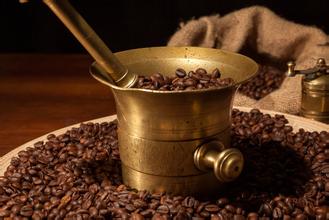Full-bodied taste of Rwanda boutique coffee flavor manor area introduction
The provinces prior to 2006 are as follows: Butale (Butare), Biwamba (Byumba), Shanggu (Cyangugu), Gitalama (Gikongoro), Giseni (Gisenyi), Gitarama (Gitarama), basic Gu (Kibungo), Kibuye (Kibuye), Kigali City (Kigali), Kigali-Ngali (Kigali Rural), Ruhengeri (Ruhengeri) and Umtala (Umutara).
A new administrative division will be implemented on January 1, 2006. The whole country of Rwanda is divided into four provinces (intara), the Province de province (intara), the north province (Province du Nord), the western province (Province de province), the southern province (Province du Sud), the city of Kigali (Ville de Kigali) and one municipality (Kigali), with 40 counties and cities (akarere) and 416 townships (umujyi).
Before 1 January 2006, the country was divided into 12 provinces. Later, in order to solve the problems caused by the massacre in Rwanda in 1994, the government decided to reorganize the political district. The first reason is the decentralization of power to the local authorities, because the authorities believe that the excessive concentration of government power is the main factor leading to genocide, and the second is to diversify the ethnic groups in the various districts so as to reduce the division between ethnic groups. [2]
Capital
Located in the central part of Rwanda, Kigali, which was founded in 1907, is the political, economic and cultural center of the country. It covers an area of 730 square kilometers and has a population of 1.13 million (2013), 70 per cent of which are in the suburbs. With a pleasant climate, tidy appearance, orderly traffic and good law and order, Kigali is considered one of the safest capitals in Africa, and became the first African city to win the UN Habitat Award in 2008.
Rwanda coffee is absolutely high quality in the form of washed Arabica beans. As far as Africa is concerned, its coffee industry is remarkable because the country thrives mainly by producing the best possible coffee beans. Coffee from Rwanda is becoming more and more popular in the international market.
The mission of the Rwanda Coffee Association is to manage and supervise the operation of the coffee industry in Rwanda from production to sale. The recently revised mission focuses on policy formulation and implementation, with more emphasis on the need to improve the professionalism of the coffee industry and to increase marketing efforts. Since the establishment of the Rwanda Coffee Association, it has promoted the Rwandan coffee culture and promoted the influence of Rwandan coffee.
But in any case, the soft and full-bodied taste of the country's coffee is great.
Rwanda is a small African country, and the local people are relatively poor, but it produces very good straight coffee. Unlike its neighbors Kenya and Ethiopia, Rwanda's coffee is mainly round bourbon. The taste is not as prominent as Ethiopia and Kenya, but the uniformity has been excellent since the 1920s. Arabica coffee grown in Rwanda is famous for its unique fruit sweetness and rich grass aroma. In recent years, the Rwandan government has taken positive measures to vigorously promote coffee production, set up coffee production cooperatives in various places, and give technical guidance and financial support to farmers, so that coffee production has made considerable progress.
There are about 33000 hectares of coffee plantations in Rwanda, with 500000 people engaged in the coffee industry. With the good natural conditions of high altitude and fertile volcanic soil, the country's fertile soil and suitable climate contribute to plant growth, and coffee trees seem to be driven or forced to grow upward, or because they grow too fast to produce the best coffee beans. The beautiful country of thousands of hills Rwanda has a long and rich culture for growing highland coffee, mainly high-quality Arabica coffee. Rwanda is the only country in the world that can fully enjoy the harmony between soil, altitude and climate. In this unique growing environment, high-quality coffee from Rwanda has a distinctive taste and aroma. Bourbon coffee grown in Rwanda is one of the original varieties of Arabica coffee.
Rwanda water washing method

Important Notice :
前街咖啡 FrontStreet Coffee has moved to new addredd:
FrontStreet Coffee Address: 315,Donghua East Road,GuangZhou
Tel:020 38364473
- Prev

Vietnamese coffee flavor Vietnamese coffee characteristics
Vietnam's geographical location is very favorable for coffee cultivation. Southern Vietnam has a hot and humid tropical climate, which is suitable for growing ROBUSTA coffee, while the north is suitable for growing ARABICA coffee. Each coffee bean used in the current production of Saigon Coffee is selected from the best coffee areas in the Vietnamese plateau and is made with special cream, with outstanding milky aroma, mellow coffee flavor and Saigon aroma.
- Next

Balinese Coffee Flavor
In 1862, in the resplendent Palace of Versailles, the Sun King Louis XIV sat dangerously, the priceless, legendary 67-carat blue diamond of hope on the crown, dazzling, and the aristocratic ministers present at the court were dressed in gold and silver. They are waiting for Ambassador Suleiman Ali Suleiman Ali from the distant and magical ancient countries of the East. The mission of Ambassador Ali's visit is to adopt
Related
- Detailed explanation of Jadeite planting Land in Panamanian Jadeite Manor introduction to the grading system of Jadeite competitive bidding, Red bid, Green bid and Rose Summer
- Story of Coffee planting in Brenka region of Costa Rica Stonehenge Manor anaerobic heavy honey treatment of flavor mouth
- What's on the barrel of Blue Mountain Coffee beans?
- Can American coffee also pull flowers? How to use hot American style to pull out a good-looking pattern?
- Can you make a cold extract with coffee beans? What is the right proportion for cold-extracted coffee formula?
- Indonesian PWN Gold Mandrine Coffee Origin Features Flavor How to Chong? Mandolin coffee is American.
- A brief introduction to the flavor characteristics of Brazilian yellow bourbon coffee beans
- What is the effect of different water quality on the flavor of cold-extracted coffee? What kind of water is best for brewing coffee?
- Why do you think of Rose Summer whenever you mention Panamanian coffee?
- Introduction to the characteristics of authentic blue mountain coffee bean producing areas? What is the CIB Coffee Authority in Jamaica?

